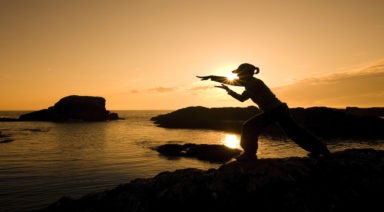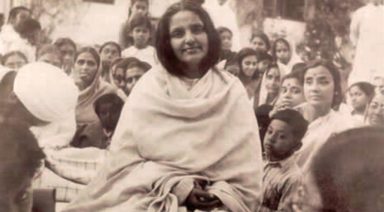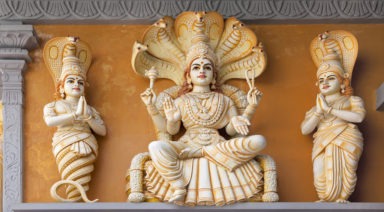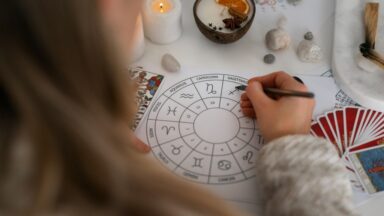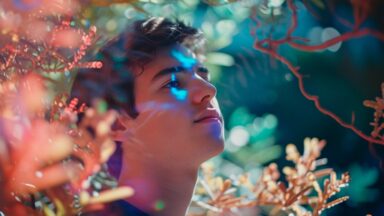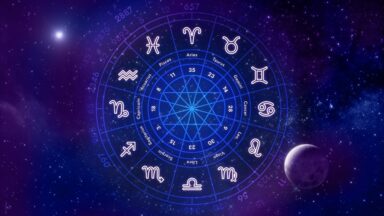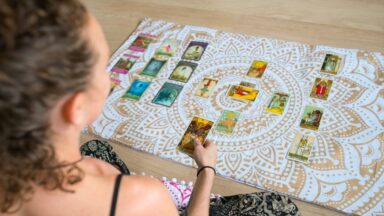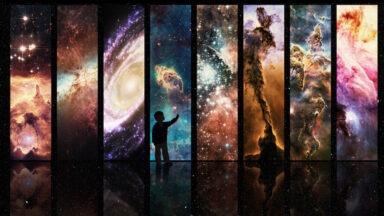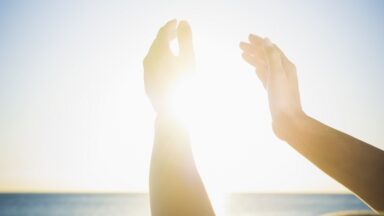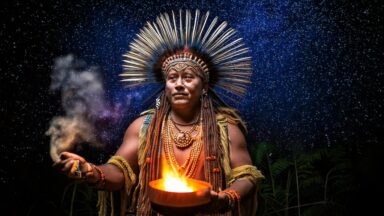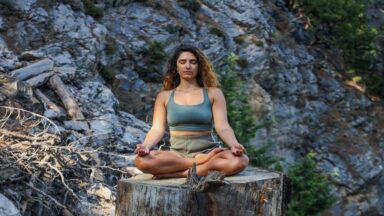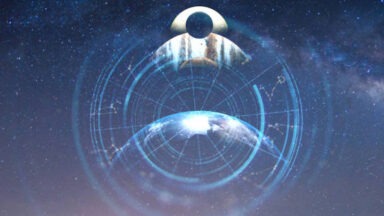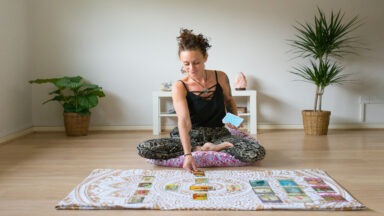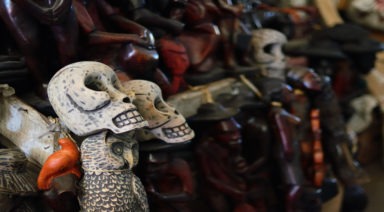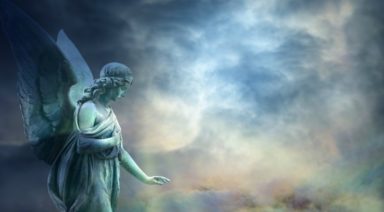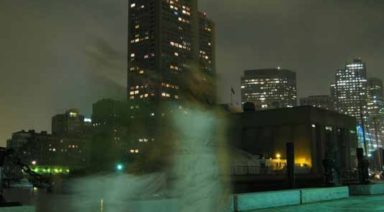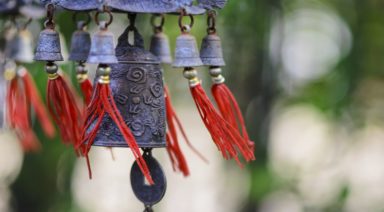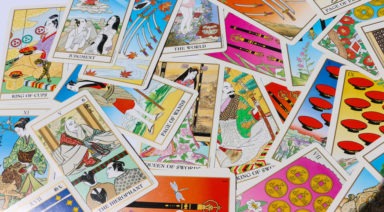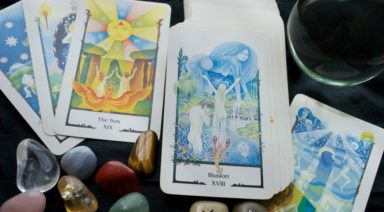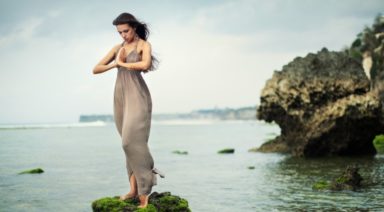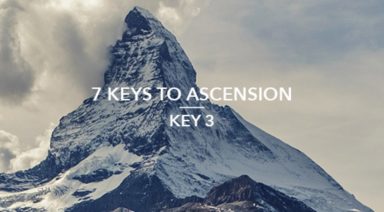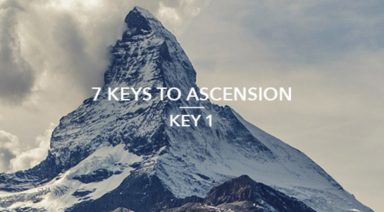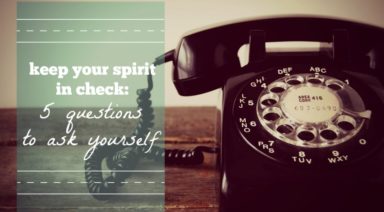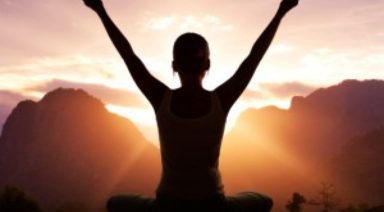How to Just Be: A Lesson in Buddhism

Buddhism offers so much freedom because there is no one path to follow. You question what you have learned and you strip away what you dare to.
Sigh, here we go again.
Upon returning from a week of yoga with amazing yogis at Wanderlust in Whistler, I thought long and hard about the bright and joyful chaos of it all and realized there was a lacking representation of Buddhist philosophy… What I would have given for a teacher preaching “There is no perfect way to enlightenment! Forget all that you think you know! Practice however you want to!”
The end of Wanderlust also marked my participation in a new series on how to touch enlightenment simply with our bodies — an insightful workshop explaining how basic embodied aspects of Buddhism have been lost over the millennia. This course came at the perfect time, after I’d left Wanderlust saturated with many offerings and inspiration, yet without a clear direction on what the next steps in my spiritual journey should be. This uncertainty and unknowing is always a ripe place to further contemplate finding peace in the present moment, rather than grasping into the abyss of the future. The place to find peace is not in overthinking, but within my unique body.
Buddhism is so radical and yet so rational. I am continually confused and frustrated by the heady philosophy. With the mind-blowing foundation of all beings suffer and concepts created by humans are not reality, it then emphasizes cultivating compassion for other beings. No wonder some find it a depressing and challenging theology to embody.
On the other hand, Buddhism is just being real. Yes, there is suffering and sadness around and within us. Yes, we must take a hard look into our worlds, re-evaluate our beliefs and perhaps throw them out the window. And what we might find is perhaps too real: THE PATH IS DIFFERENT FOR EVERYONE. Your practice is whatever you want it to be. You call the shots on how you will release your attachments to your past to get present in your body. Your unique self dictates whether you will pray, study or exercise and it’s perfect, as long as it takes you closer to kindness; to the moment you are in a place of non-attachment.
My unique practice spirals in the following cycle:
- I slip into habitual thoughts of “I’m not good enough, I’m not thin enough, I’m not strong enough, I’m not successful enough,” and take a trip down the rabbit hole into gloom and doom. I question and judge all that I think I am.
- At a certain point, I decide to lie down on my back to breathe, or I use some means to connect to my body, this vessel of wisdom and strength that I have had a lifelong love affair with, and it begins to shift.
- I transform. I become something closer to peace. I remember that I only have control over my body and my current thoughts. I become freedom and relief. I might call this Buddhism, or yoga or church.
- The beauty of getting lost within myself and exploring how to relax and let go feels poetic and surreal. I feel totally healed from the darkness and gain wonderful insights on how to get out of it more quickly next time.
- And then back into the hole I go.
As a student who now guides others through these same storms, I can see the angst of practitioners trying to carve out a unique path while teetering on the verge of a big understanding—they are feeling things in their bodies as never before, they are writing new stories in their tissue and in their hearts… And it comes out of them as it does. Sometimes unaware, sometimes hyper-sensitive, sometimes all-knowing.
The varying reactions and emotions to being in this internal battle between habit and presence are wonderfully real and important to going further within. We unfortunately compartmentalize those around us or label and over-explain everything. But if we sit back and thankfully observe that no one can dictate how the individual path ought to look, that we can simply be in a process and in an honest transition, then to me, that moment is enlightenment.
We make our process and the goal of enlightenment such a big deal. But it’s just life. It’s a gift to be alive for this short while and lately part of my rabbit hole is how devastating I feel to be wasting years in the same thoughts and insecurities. I want to be here for this small time and not in my tiny head. When I take the time to shift out of my dark and repetitive thoughts and reconnect to my physical body, I feel more connected to others around me and the truth that we are all on this journey supported and together, whatever form our practices/rituals take.
As I reflected upon the sheer excitement of each teacher at Wanderlust offering their own perspective toward personal transformation and an embodied presence on this earth, I saw the whole festival in a new light: it was a truly inclusive Buddhist bash. With so many paths and so many offerings to soak up, I instinctively retreated from it all and went deep within to find out what was best for me. I let myself feel awed and overwhelmed by all the inspiring teachers. I reevaluated my insecurities and doubts about my personal journey and my offerings as a teacher. It all led me within. To the unknown. To another sigh of realizing, Yes, this is just life. This is another moment to be brave. To step out and question. Some days I jogged. Some days I sat beside my companion the river with my breath. Some days I did yoga with a goofy wide grin.
Many paths lead me inside.
I am here for yours. And I vow to remain here for whatever is mine.
“Buddhism also asserts that the spiritual journey is unique to each individual. Therefore, of course, it cannot be held, circumscribed, limited, or even ultimately judged by any institution, tradition, or external authority. The unique journey that lies before us does not exist in any text, external person, or religion. In fact, it does not yet exist at all, but only lies ahead of us, to be discovered literally as we go. Thus it is that the spiritual journey cannot in any way be preconceived or pre-determined; it is not humanly constructed or fabricated. The journey to ourselves is truly a journey into the unknown, a setting forth onto a sea that has never before been sailed and never before been fathomed or mapped.” – Reggie Ray
Qigong: Centuries Old Wisdom for Modern Times
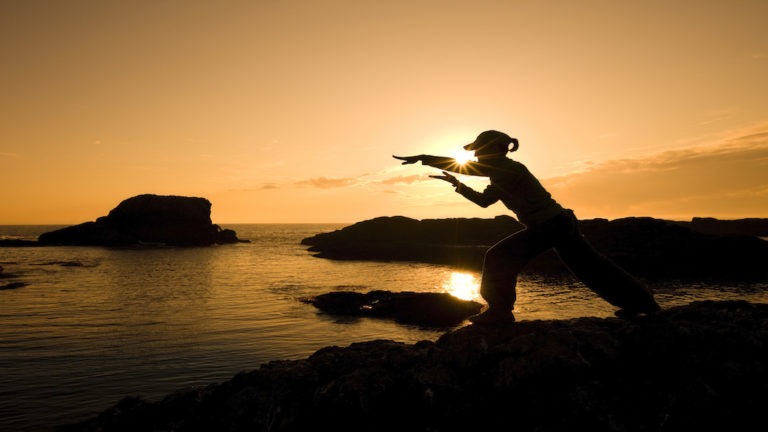
Modern life is busy and stressful. The speed in which we live can be exhausting and the catalyst for a host of ailments. In our chronically overscheduled lives, learning to cultivate a sense of balance can be difficult. However, there is an ancient solution to this very modern problem: Qigong, a centuries-old method viewed as a way to find peace, balance, mindfulness and a way to tap into one’s life energy.
Originating in China, qigong is actively practiced around the globe by people of all ages; from those seeking increased flexibility, health, spirituality, improved posture, and ease of movement. What is qigong and how has this “life energy” form of exercise become such a popular form of self-care?
Qigong can best be described as a gentle form of martial arts that unites breathing, movement, and meditation. According to the National Qigong Association, qigong is not one form. It literally has hundreds of styles and applications, traditions, practices, and lineages. What is agreed upon is that, at its center, qigong is a philosophy based on two essential aspects: qi, the subtle breath or vital energy; and gong, a skill cultivated through steady practice working to stimulate our Meridian system.



